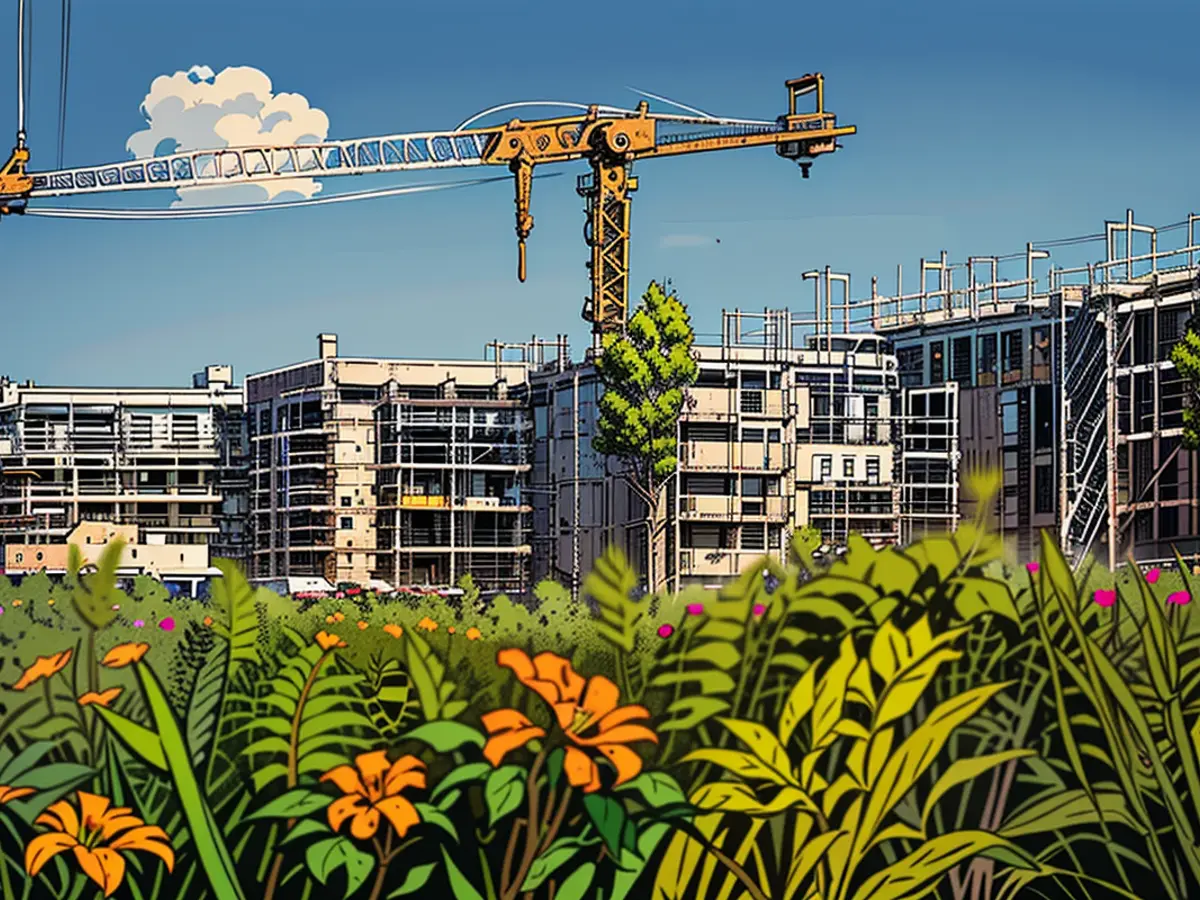Elevating, Swifter, More Dense - Government Pursues Housing Intensification
The administration aims to boost stagnant urban housing development in Germany by revitalizing construction procedures. The focus is on additions and densification, particularly in city centers, and the approval process is planned to be expedited. However, the construction and real estate sector applauds the direction but seeks a more substantial solution.
The German government proposes to expedite housing production by amending the Building Code with a bill endorsed by the Cabinet's Minister of Housing, Klara Geywitz. The plan includes facilitating the creation of building plans in urban districts and easing extension processes in densely populated areas. Second-row ground-level construction and inner-city courtyard construction will be permitted. Moreover, the government intends to require prior state approval for converting rental apartments into owned properties in regions with housing shortages.
Geywitz announced that the updated Building Code will promote efficiency and modernization, as well as speed up approval and construction processes. The construction and real estate sector views this as a step in the right direction but still longs for a more substantial solution to create ample housing.
"Building plans should no longer take years," Geywitz insisted. In the future, they should be ready within 12 months following the conclusion of the participation process. The revised code will also prioritize homeownership and protect tenants, while making it easier to establish music clubs in industrial areas and safeguarding them from displacement.
Construction Industry: Approach of Small Measures
The Central Association of the German Construction Industry (ZDB) recognized both strengths and weaknesses in the amendment. "The eased possibilities for additions and backyard construction are rational and allow the creation of housing in congested inner-city areas without requiring changes to existing building plans," explained ZDB CEO Felix Pakleppa. Streamlining the approval process is commendable, but additional adjustments in noise protection regulations are needed to encourage land development and residential construction.
The German Construction Industry's primary association (HDB) criticized an approach of incremental changes. "The approved draft for the Building Code revision shows that good intentions alone are not sufficient," HDB CEO Tim-Oliver Müller commented, critiquing the proposal for failing to provide an effective solution to alleviate the housing shortage.
The Central Real Estate Committee (ZIA) expressed mainly positive sentiments. "Following years of debates, we are delighted to finally see a genuine revision of the Building Code," said ZIA President Iris Schoberl, emphasizing the importance of municipalities embracing the "new openness" instead of resisting it through rigid regulations.
The German Housing and Real Estate Companies Association (GdW) acknowledged promising approaches, but GdW President Axel Gedaschko pointed out that the draft bill fails to provide the powerful push required to accelerate housing construction.
The revised Building Code, as proposed by Geywitz, will not only expedite the approval process for housing construction but also encourage addition and backyard construction in urban areas. However, the Central Real Estate Committee (ZIA) believes that while the draft bill is a step in the right direction, it lacks the necessary power to significantly accelerate housing construction.








